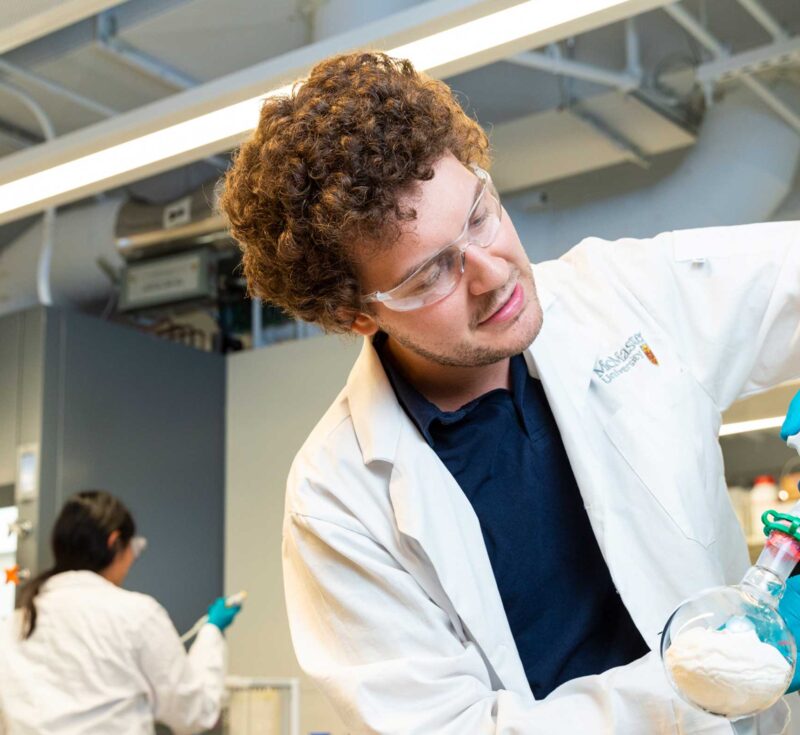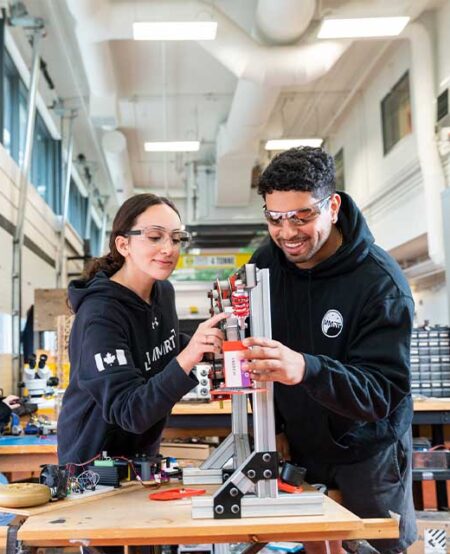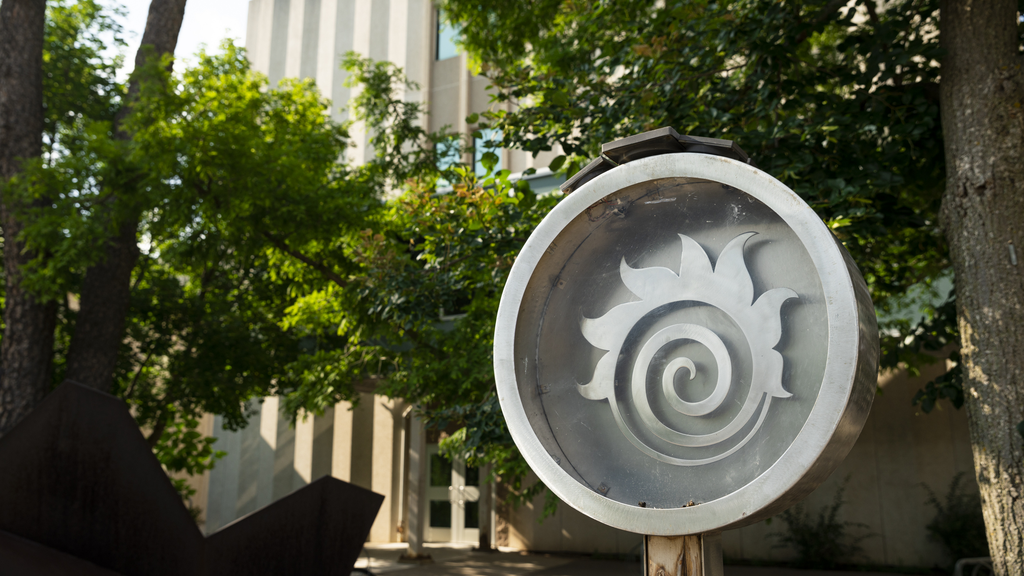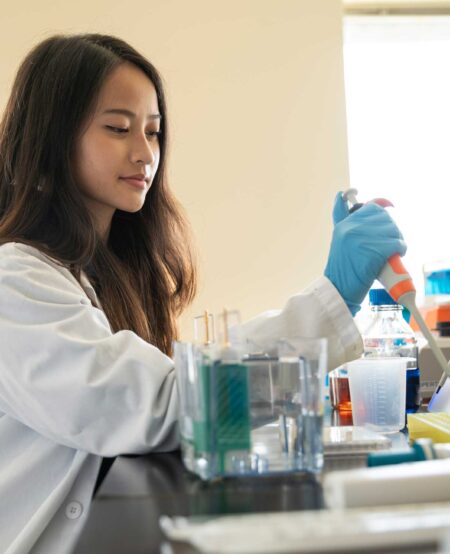- Length
- 5 years
- Degree
- Bachelor of Engineering & Biomedical Engineering (Co-op Available)
- Program
- Integrated Biomedical Engineering & Health Sciences (iBioMed)
- Options
Program highlights
Chemical Engineering focuses on the design of processes capable of producing new materials, energy and clean water in a highly effective manner – processes in which the human body excels.

Useful Links
Admission requirements


Careersand research
Example career paths:
- Process and refine fuels (gasoline, natural gas, propane)
- Develop sustainable energy systems
- Manufacture silicon chips
- Produce the food we eat
- Resolve environmental problems
Research areas:
- Energy production and energy systems
- Biological interface engineering and nanotechnology
- Water and wastewater treatment
Need moreinformation?
How to apply
Understand every step, from applying, to accepting your offer and joining us on campus!
Department of Chemical Engineering
We are tackling challenges in energy, water, food, health and environment with practical solutions that will lead to new opportunities in a fast-paced world.


